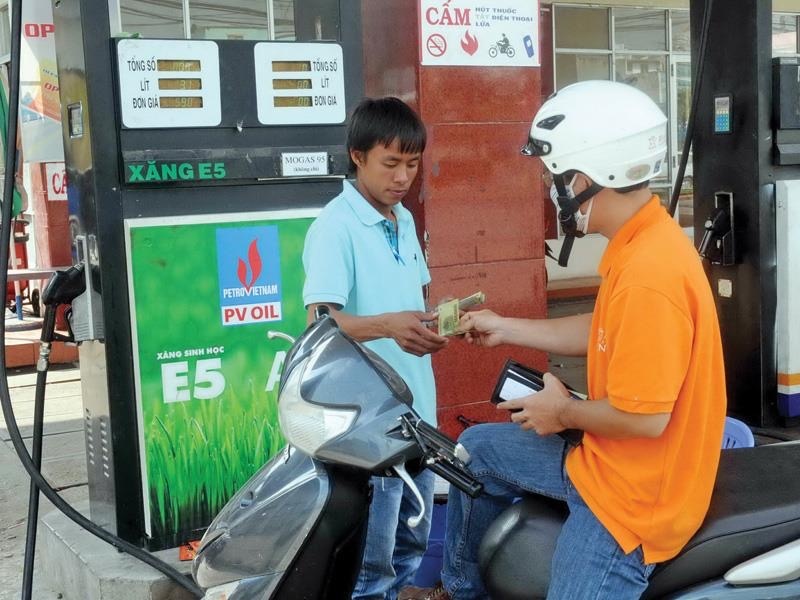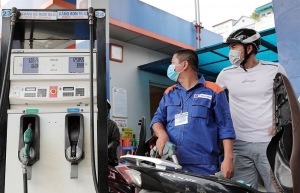MoF proposes to reduce import tax on gasoline and ethanol goods
In earlier September, the Ministry of Finance (MoF) finalised the draft Decree of the export tariff schedule and the preferential import tariff schedule, following the prime minister's decision on the introduction of import tax rates for gasoline and ethanol products.
Previously, on August 8, the government issued Decree No.51/2022/ND-CP lowering the preferential import tax rates for unleaded motor gasoline coded between 2710.12.21 and 2710.12.29 from 20 per cent to 10 per cent.
In addition to unleaded motor gasoline, heading 27.10 also includes petroleum products with different octane ratings than motor gasoline. These items function as input materials for the manufacturing of paint or gasoline blending, with HS codes 2710.12.31, 2710.12.39, 2710.12.40, 2710.12.50, 2710.12.60, 2710.12.70, 2710.12.80, 2710.12.91, 2710.12.92, 2710.12.99 and have a preferential tax rate of 20 per cent.
 |
| The tax adjustment will cut the cost of petroleum |
To guarantee consistency with unleaded gasoline products, the MoF has suggested a tax rate decrease for the aforementioned blends equivalent to the 10 per cent preferential tariff for unleaded gasoline products.
The ministry also proposed a reduction in the ethanol commodity tax from 15 per cent to 10 per cent in the belief that this minor adjustment will not impair local production but will lower the price of petroleum products in the current situation.
Agricultural byproducts such as cassava, corn, rice, and bagasse are converted into biofuel using ethanol and gasoline as inputs. In Vietnam, estimates reveal that the demand for ethanol to produce E5 RON92 gasoline is about 200 million litres per year.
The price of domestically produced ethanol is less competitive than that of imported equivalents due to unstable raw materials, however, manufacturers' annual ethanol production capacity has reached 400 million litres across the country.
Currently, Vietnam has six ethanol manufacturing facilities for blending it into biofuel. Nonetheless, some have ceased operations due to losses, while others have suspended construction because of a lack of funding, resources, and intense competition from imported ethanol.
Environmental protection and excise taxes give additional incentives for ethanol goods. In theory, the export tax rate is lower than the gasoline import tax rate but remains negotiable in upcoming free trade agreements.
 | Vietnamese oil facing significant hurdles The government is promoting energy self-reliance rapidly as global developments have significantly changed the world’s energy situation, pushing Europe into gas scarcity for this winter. |
 | Strategies considered to cope with oil shifts As there is no silver lining ahead just yet when it comes to stabilised oil prices, economists and associations agree that corporate taxes should be reduced and oil reserves built to help cope with the current dilemma, but both of these solutions would be costly. |
 | Balancing the effects of global oil price fluctuations Global oil prices are predicted to bounce back at the year-end, despite continued geopolitical tensions. Luong Van Khoi, vice president of the National Centre for Socio-economic Information and Forecast, spoke with VIR’s Nguyen Huong about how Vietnam’s socioeconomic development could be affected. |
What the stars mean:
★ Poor ★ ★ Promising ★★★ Good ★★★★ Very good ★★★★★ Exceptional
 Tag:
Tag:
Related Contents
Latest News
More News
- Banking sector targets double-digit growth (February 23, 2026 | 09:00)
- Private capital funds as cornerstone of IFC plans (February 20, 2026 | 14:38)
- Priorities for building credibility and momentum within Vietnamese IFCs (February 20, 2026 | 14:29)
- How Hong Kong can bridge critical financial centre gaps (February 20, 2026 | 14:22)
- All global experiences useful for Vietnam’s international financial hub (February 20, 2026 | 14:16)
- Raised ties reaffirm strategic trust (February 20, 2026 | 14:06)
- Sustained growth can translate into income gains (February 19, 2026 | 18:55)
- The vision to maintain a stable monetary policy (February 19, 2026 | 08:50)
- Banking sector faces data governance hurdles in AI transition (February 19, 2026 | 08:00)
- AI leading to shift in banking roles (February 18, 2026 | 19:54)






















 Mobile Version
Mobile Version